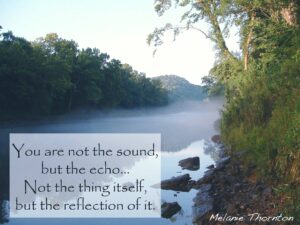As today is Thanksgiving, I want to share a story about gratitude.
Years ago my mom worked with a man who had several children. The youngest, Julia, was doted over by the whole family. She had to go in to have her tonsils removed and her parents and siblings worried that she would be scared. So they dealt with it preemptively by talking about all of the good things that would happen before and after the surgery.
“You’ll get to stay home from school.”
“You’ll get to eat all of the ice cream and popsicles you want.”
And on and on.
They realized they may have overdone it when she finally proclaimed, “I’m so lucky!”
This story is one that my family has referenced often through the years. Like an inside joke, we sometimes say “I’m so lucky” in situations where we are facing something challenging. It brings a bit of levity into the situation and is also a reminder that there really is always something to be grateful for.
As neuroscientists are recognizing the many benefits of gratitude on our well-being they are also discovering that for some people, like Julia, gratitude comes more naturally. Research is identifying both genetic differences and brain differences in people who are naturally more grateful.
The good news though is that whether gratitude comes naturally or not, practicing gratitude can change our habits and maybe even rewire our brains—resulting in greater health and happiness.
Gratitude can look a lot of different ways. We may be grateful to a specific person.… Read the full post “I’m So Lucky!”
